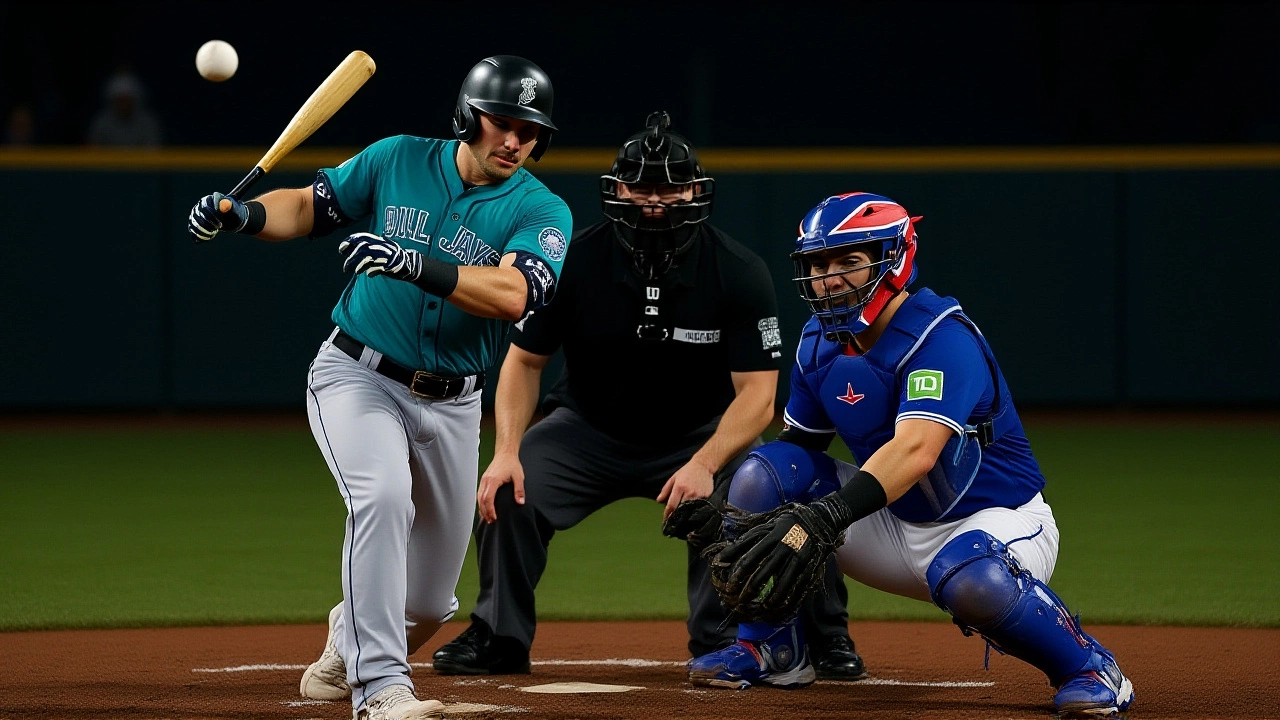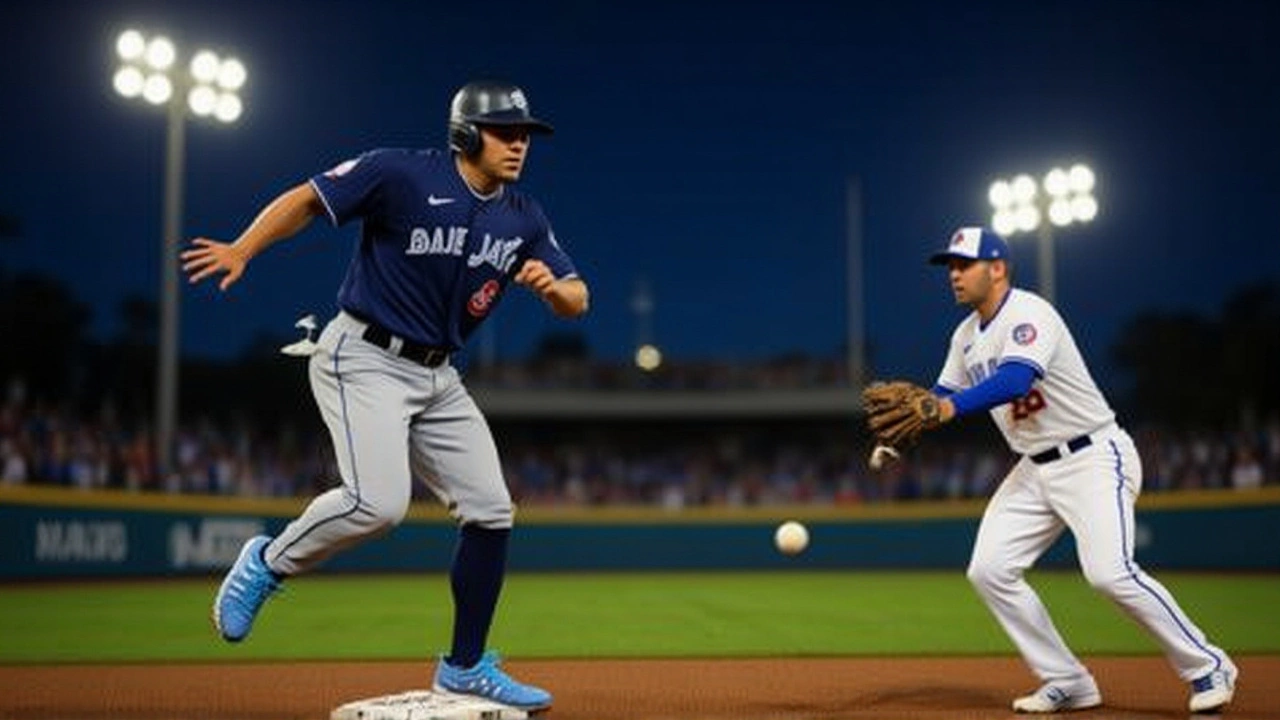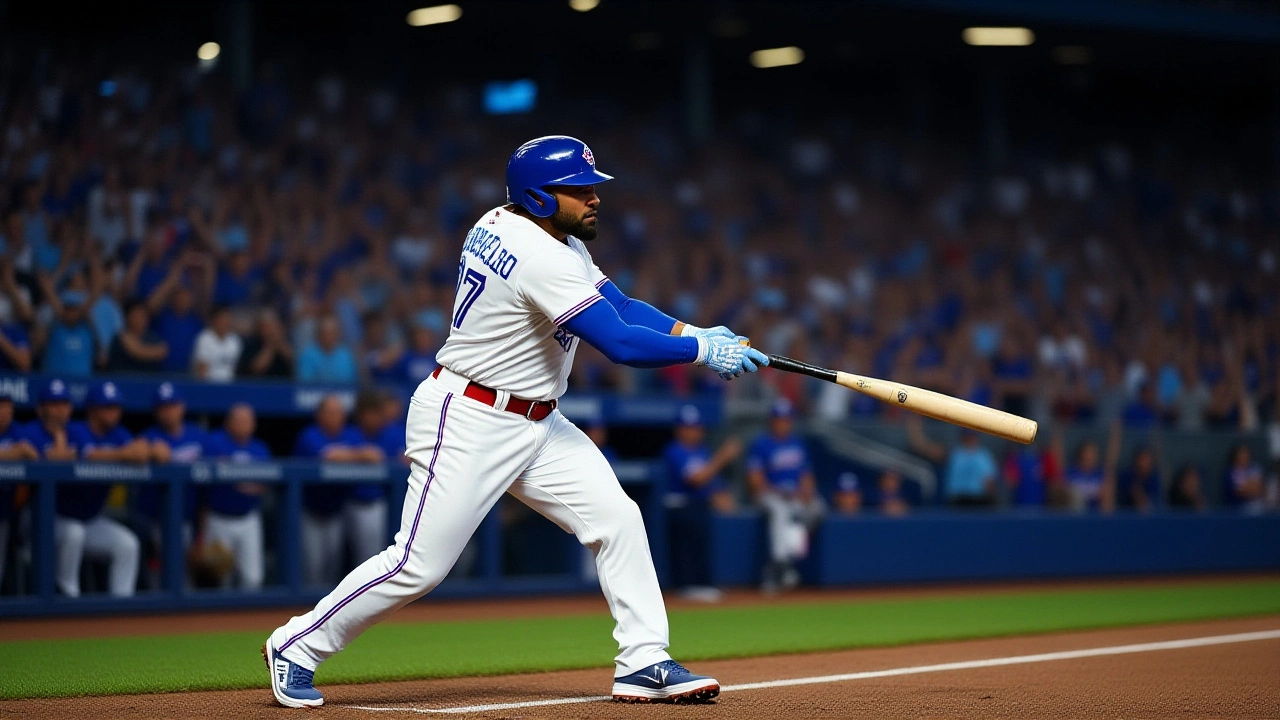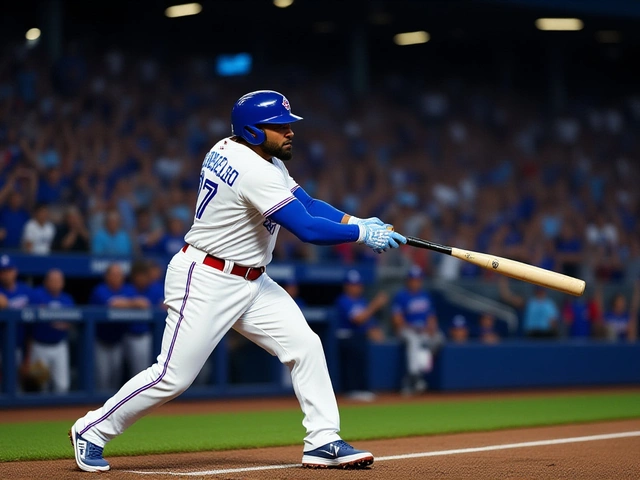When George Springer, outfielder of Toronto Blue Jays stepped up to the plate in the bottom of the seventh, the roar at Rogers Centre turned from nervous anticipation to outright jubilation. His three‑run home run off Seattle’s fire‑ball pitcher Logan Gilbert, a 27‑year‑old right‑hander from Gig Harbor, Washington, gave the Blue Jays a 4‑3 lead that they would hold onto to clinch the American League Championship Series (ALCS) on October 20, 2025.
The win snapped a 32‑year World Series drought for Toronto, sending the club to the Fall Classic for the first time since their back‑to‑back championships in 1992 and 1993. Meanwhile, Seattle suffered its first Game 7 loss in franchise history, a sting that will linger after their lone ALCS Game 7 victory back in 2001.
Game Overview: A Nail‑Biter from Start to Finish
The atmosphere inside Rogers Centre was electric from the first pitch at 7:00 PM ET. The Mariners drew first blood when center‑fielder Julio Rodríguez, the 24‑year‑old two‑time All‑Star from the Dominican Republic, ripped a leadoff double and eventually scored on a single by designated hitter Josh Naylor. Seattle’s early momentum seemed poised to carry them through, but Toronto answered back in the third inning with a clutch two‑run single by shortstop Ty France.
By the fifth inning the Mariners were trading blows, but the Blue Jays’ .297 postseason batting average dwarfed Seattle’s .215. The Mariners struck out roughly twice as often as the Jays throughout the series, a statistical edge that became starkly evident in Game 7.
Key Plays and Player Performances
The pivotal moment arrived with two outs and runners on first and second. Springer, who was already a 2021 World Series MVP, launched a towering 415‑foot shot that cleared the left‑field wall. The blast not only put Toronto ahead 4‑3 but also shifted the psychological balance; the crowd’s wave of cheers was matched only by the silence that fell over the visiting dugout.
Gilbert, who had been steady all season, tried to bounce back in the eighth with a strikeout‑twin, but the Jays’ bullpen – anchored by closer Jesse Lynn – kept the Mariners at bay. Defensive gem after gem, including a laser‑like throw from third‑baseman Spencer Barger that sliced a grounder to second, preserved the lead.
For Seattle, Rodriguez’s earlier double remained a bright spot, as did the bullpen’s resilience. Yet the team’s inability to generate offense with runners in scoring position – they went 0‑10 in that circumstance – mirrored a series‑long trend.
Broadcast, Fan Reaction, and Digital Reach
The game was produced by Sportsnet, Canada’s leading sports‑media outfit, whose play‑by‑play was handled by veteran commentator Dan Shulman. Shulman’s vivid description of Springer’s swing – "a perfect blend of power and timing" – quickly became a meme on Twitter.
Fans streamed the live action on the Sportsnet+ platform and flooded the network’s social feeds with #BlueJaysALCS. A post‑game watch‑along hosted by Toronto broadcaster Jesse Blake raised over $12,000 for Easter Seals Ontario, showing how sport can pivot into community impact.

Historical Context: Breaking Droughts and Firsts
The Blue Jays’ return to the World Series marks their first appearance since the early ’90s, ending a 32‑year hiatus that began after manager Cito Gaston led the club to consecutive titles. That era still looms large in Toronto’s baseball psyche, and Springer's heroics have already earned a place alongside the famous 1992 and 1993 championship runs.
Seattle’s loss, meanwhile, writes a new chapter in franchise lore. The Mariners have only ever won an ALCS Game 7 – back in 2001 – and that victory was chalked up to a dramatic ninth‑inning rally. This time, the Mariners fell short despite a strong start, underscoring the fine margins that decide postseason fate.
What Lies Ahead: World Series Preview
The Blue Jays now turn their gaze to the World Series, set to begin on October 25, 2025. Their opponent will emerge from the National League Championship Series (NLCS), which is currently heating up between the Los Angeles Dodgers and the Philadelphia Phillies. Analysts point to Toronto’s balanced lineup – power, speed, and a bullpen that can lock down late‑inning leads – as key factors that could tilt the series in their favor.
For the Mariners, the offseason will likely focus on bolstering offensive production against elite pitching. Front‑office insider Emma Collins hinted at possible trades at the upcoming Winter Meetings, aiming to add depth to the middle of the order.

Key Takeaways
- Springer’s three‑run homer proved decisive in a 4‑3 victory.
- Blue Jays post‑season batting average: .297 vs. Mariners .215.
- First World Series appearance for Toronto since 1993.
- Mariners suffer first ALCS Game 7 loss in franchise history.
- World Series matchup to be decided on Oct. 25, 2025.
Frequently Asked Questions
How does the Blue Jays’ win affect Toronto fans?
Toronto fans finally get to celebrate a World Series berth after three decades, reviving city‑wide excitement that spilled onto streets, bars, and social media. Merchandise sales are projected to surge by 25% in the next week, and local businesses anticipate a boost in tourism when the Series arrives.
What were the key statistical differences between the teams?
The Jays hit .297 as a team in the postseason, while Seattle managed .215. Seattle struck out 52 batters over the series, 27 more than Toronto’s 25. Springer’s three‑run homer contributed to 35% of Toronto’s total runs in the series.
Who will the Blue Jays face in the World Series?
The opponent is still undecided; the NLCS winner between the Los Angeles Dodgers and the Philadelphia Phillies will meet Toronto. Both clubs have strong pitching staffs, so the Series could hinge on how well the Jays’ offense performs against elite arms.
What changes might the Mariners consider after this loss?
Seattle’s front office is likely to explore adding a middle‑order bat that can handle high‑leverage situations. Rumors suggest interest in a veteran slugger at the trade deadline, and the club may also look to strengthen bullpen depth to protect leads.
What role did the broadcast team play in shaping fan perception?
Dan Shulman’s vivid commentary and Jesse Blake’s post‑game analysis amplified the drama, driving social‑media engagement that trended nationwide. Their narratives highlighted Springer's clutch legacy, framing the victory as a turning point for the franchise.

